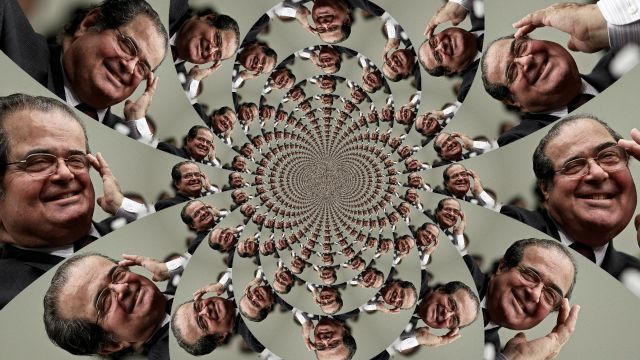Why is ISIS on Birthday Cakes and at Gay Pride Parades?

What defines our age in a philosophical sort of way is the triumph of the symbol. Words seem to mean things they didn’t use to, whether it’s a brand telling me to express my individuality by purchasing its mass-produced product, or a government telling me that a vote for the war machine is a vote for peace and prosperity.
Using rhetoric to repackage an idea makes it easier to sell, and what’s remarkable about our time is that even good ideas require selling (because bad ideas now sound like good ideas). So the Confederate flag is apparently about heritage, although it didn’t begin flying again until desegregation; now charities must have marketing campaigns alongside child-labor-using, tax-dodging, multi-billion-dollar corporations.

Nothing is more symbolic, of course, than a nation’s flag. A nearly arbitrary assemblage of colors and shapes that represent an amorphous national culture. During the Cold War, the Stars-and-Stripes and Hammer-and-Sickle meant very different things depending on whether you lived in the U.S.S.R. or the U.S.A. Well, now it’s ISIS’ turn.
The Middle Eastern pan-Arab military organization has found its way into the hearts and minds of Westerners searching for a cause. In one case, a Walmart employee was duped into icing a cake that looked like the ISIS flag (whereas the company refused to make a Confederate flag cake). And in London, a mock ISIS flag was flown at a gay pride parade using dildos in place of Arabic script. Wut?

I am thoroughly confused by these apparent political statements. Attempting to untangle them — to see their “logic” — seems completely futile. It requires even more rhetoric to sustain the charade that they are meaningful in any sense, positive or negative. To me, they seem out beyond meaning, like the ravings of a mad person.
When these kinds of stories are caught on camera, and then show up in the media, how do we cope with their corrosive effects on the culture? Ignore them? Ironize them via Internet blog post? Take up the unenviable cross of defending utterly boring, naive, and “traditional” values (once known simply as values)?
Maybe we do not cope or act at all. Maybe just thinking about them is enough. That was the opinion of contemporary theorist and philosopher Slavoj Žižek when he sat down with Big Think.
Photo credit: Shutterstock





